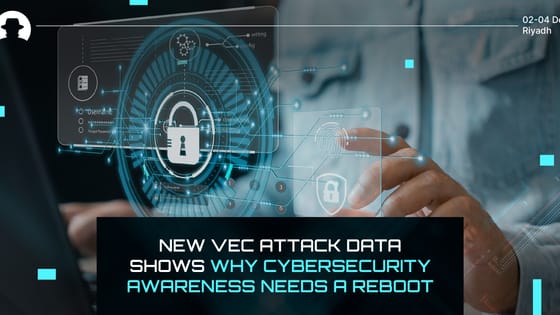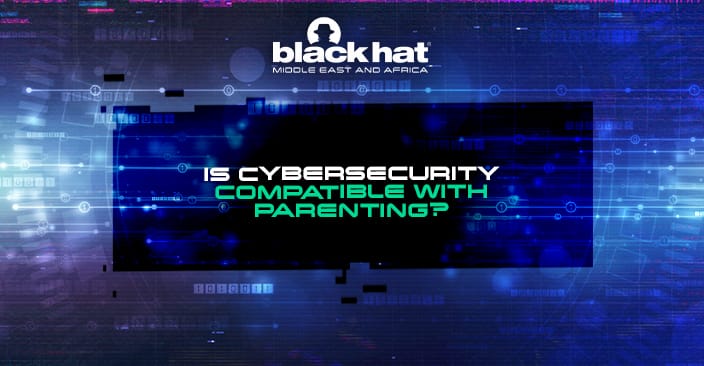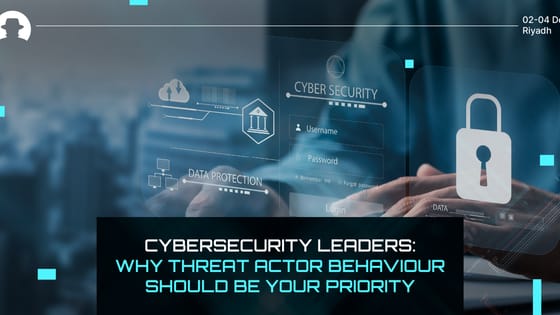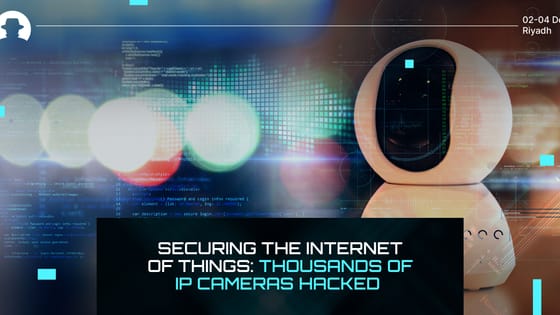
New VEC attack data shows why cybersecurity awareness needs a reboot
New research on vendor email compromise attacks shows that nearly half of employees fall for malicious emails, and 98.5% go unreported.
Read More
Last year, we interviewed Lance James (Founder and CEO at Unit 221B) for the BHMEA blog – and he told us how he weaves the philosophy of Zen into his leadership style.
This time, we wanted to go a little deeper. Lance shared how he first came to Zen in his own life, and how that translated into work. We also asked how he balanced the pressures of cybersecurity leadership with his role as a parent when his children were young – and what the industry could do to ensure that parenting and cybersecurity are not incompatible.
“Let’s start with how Zen came into my life as a leader first. Reflecting on my past, I acknowledge that I was far less consistent. My prior self was a tumultuous mixture of good and bad days. The aspiration to lead was always present, yet my execution varied drastically. Some days I would shine in my role, demonstrating commendable leadership. On other days, I lacked mindfulness, appearing insensitive and uncontrolled. I was preoccupied with the external world, neglecting control over my inner self.
“In 2018, my world shattered when my 16-year-old son departed this life abruptly. This devastating loss left me immobile, broken in every conceivable way. It was during this darkest period that I chose to fully embrace Zen. In the face of such a tragedy, one clings to a belief, a 'box' — Zen became mine. I spent countless hours sitting, learning to breathe, to turn inward.
“The external world was overwhelming; I had no other option but to retreat within.
“My journey towards healing mirrored the Japanese art form of Kintsukuroi, also known as Kintsugi or 'golden repair'. This art form deeply resonated with me, reflecting my own path. In the wake of tragedy, survivors are faced with a decision — to shatter and rebuild or to shatter and succumb to defeat. In honour of my son’s memory and my living daughter, I was propelled to choose the former, to strive towards growth and improvement.
“Months later, I returned to my previous job. Despite my recent loss, I was asked to lead a 40-person engineering team, which was operating in chaos and desperately needed calm and steady leadership. They saw my process of grieving as a sign of newfound centeredness and grounding. Zen had begun to reveal the transformative power of daily practice. I had cultivated an inner calm, which others perceived as readiness to handle their chaos.
“In the midst of the ultimate chaos, the quest for my centre enabled me to become the eye of my own storm.
“Fast forward to the present day, as a CEO, I've come to understand mindfulness as a practice rather than a natural state. I've noticed certain things that contribute to my stress, but with mindfulness, I can quickly identify these moments and remind myself, ‘don't attach, this is just a moment.’ I’ve learned by doing this, my actions influence the rest of the organisation. They are more relaxed and confident in managing complicated work problems.
“One of the most valuable insights from practising mindfulness at work is realising that many times, if I don't attach to an issue or rush to ‘fix’ it, time and synchronicity will often resolve the most ‘dramatic’ situations.
“Another mindfulness technique is to consistently seek the middle path, a way to find peace amidst turbulence. As the CEO, I believe it's a significant part of my role to promote patience and steady forward momentum throughout the company.”
“To answer the question about balancing parenthood with a high-pressure leadership role, I'd start by saying that early in my career when my two children were very little, I had to establish a strict routine to balance my work and family life.
“I was running my first company from a locked office at home. At that time, I relied heavily on the support of their mother's great grandmother, as their mother was often bedridden due to health conditions. It was challenging, but I made sure to strictly separate work and family time. I ended work at 6 pm at the latest, and dedicated the evenings to dinner, play, and bedtime. Mornings were for helping with school preparations before focusing on work.
“Fast-forwarding to today, I am very active in my adult daughter's life, despite the physical distance. We have a standing FaceTime appointment every Friday at 4 pm.
“As a CEO of a company that supports many families, I believe it's important to remember that many of us work because of our families or to take care of someone who once cared for us. It's vital to remember this within the work environment. I believe that when it comes to health – either my own or my family's – I should never have to ask for permission from work.”
Thanks to Lance James at Unit 221B. Learn more from Lance at Black Hat MEA 2024.
Join the newsletter to receive the latest updates in your inbox.

New research on vendor email compromise attacks shows that nearly half of employees fall for malicious emails, and 98.5% go unreported.
Read More
With new data from Arkose Labs, learn why psychology, business strategy and timing are just as important as technology for cyber defence.
Read More
The latest in a long line of attacks against IoT devices that highlights the vulnerability of the Internet of Things.
Read More